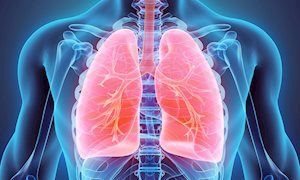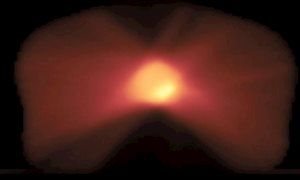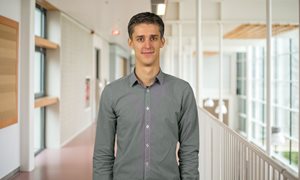 In Thorax BMJ journals Anton Schreuder, Bram van Ginneken and colleagues, showed that in a lung cancer screening setting, combining patient characteristics with CT image data can allow many participants to safely skip the first annual follow-up, hereby reducing the number of unnecessary scans.
In Thorax BMJ journals Anton Schreuder, Bram van Ginneken and colleagues, showed that in a lung cancer screening setting, combining patient characteristics with CT image data can allow many participants to safely skip the first annual follow-up, hereby reducing the number of unnecessary scans.
Background
All lung cancer CT screening trials used fixed follow-up intervals, which may not be optimal. We developed new lung cancer risk models for personalising screening intervals to 1 year or 2 years, and compared these with existing models.
Methods
We included participants in the CT arm of the National Lung Screening Trial (2002–2010) who underwent a baseline scan and a first annual follow-up scan and were not diagnosed with lung cancer in the first year. True and false positives and the area under the curve of each model were calculated. Internal validation was performed using bootstrapping.
Results Data from 24 542 participants were included in the analysis. The accuracy was 0.785, 0.693, 0.697, 0.666 and 0.727 for the polynomial, patient characteristics, diameter, Patz and PanCan models, respectively. Of the 24 542 participants included, 174 (0.71%) were diagnosed with lung cancer between the first and the second annual follow-ups. Using the polynomial model, 2558 (10.4%, 95% CI 10.0% to 10.8%), 7544 (30.7%, 30.2% to 31.3%), 10 947 (44.6%, 44.0% to 45.2%), 16 710 (68.1%, 67.5% to 68.7%) and 20 023 (81.6%, 81.1% to 92.1%) of the 24 368 participants who did not develop lung cancer in the year following the first follow-up screening round could have safely skipped it, at the expense of delayed diagnosis of 0 (0.0%, 0.0% to 2.7%), 8 (4.6%, 2.2% to 9.2%), 17 (9.8%, 6.0% to 15.4%), 44 (25.3%, 19.2% to 32.5%) and 70 (40.2%, 33.0% to 47.9%) of the 174 lung cancers, respectively.
Conclusions
The polynomial model, using both patient characteristics and baseline scan morphology, was significantly superior in assigning participants to 1-year or 2-year screening intervals. Implementing personalised follow-up intervals would enable hundreds of participants to skip a screening round per lung cancer diagnosis delayed.
Aunt Minnie published an interview with Anton.
This research was conducted within the theme of Rare cancers.
Publication
Lung cancer risk to personalise annual and biennial follow-up computed tomography screening.
Schreuder A, Schaefer-Prokop CM, Scholten ET, Jacobs C, Prokop M, van Ginneken B.
Thorax. 2018 Mar 30.
Related news items

KWF grant for better selection of individuals and lung nodules in lung cancer screening
1 November 2021 The Dutch Cancer Society has awarded the consortium project ‘Multi-source data approach for Personalized Outcome Prediction in lung cancer screening’ with a grant of 1,425,000 Euro. Colin Jacobs will lead the work package on using artificial intelligence for accurate risk estimation of lung nodules. go to page
Radiation boost lowers risk of prostate cancer recurrence
21 January 2021 An additional external-beam radiation dose delivered directly to the tumor can benefit the prospects of men with non-metastatic prostate cancer, without causing additional side effects. The risk of relapse within five years for these men is smaller than for men who did not receive this boost. go to page
Evaluation of an AI system for detection of COVID-19 on Chest X-Ray images
22 May 2020 In the journal Radiology researchers from Radboudumc, Bernhoven Hospital and Jeroen Bosch Hospital described how an artificial intelligence system (CAD4COVID-XRay) can identify characteristics of COVID-19 on chest x-rays with performance comparable to six independent radiologists. go to page
Is Google's lung cancer AI ready for implementation?
19 December 2019 In Nature Reviews Clinical Oncology, Colin Jacobs and Bram van Ginneken discussed the recent paper by Google AI in Nature Medicine on deep learning models for automatic detection of lung cancer from computed tomography. go to page
Awarded KWF grants for Radboudumc researchers
18 December 2019 KWF is investing 2.7 million euros in five different studies at Radboudumc. The awards are part of the new round of funding by DCS, in which over 34 million euros will be granted to Dutch cancer research. We congratulate our researchers with this funding and wish them success with their great work. go to page
